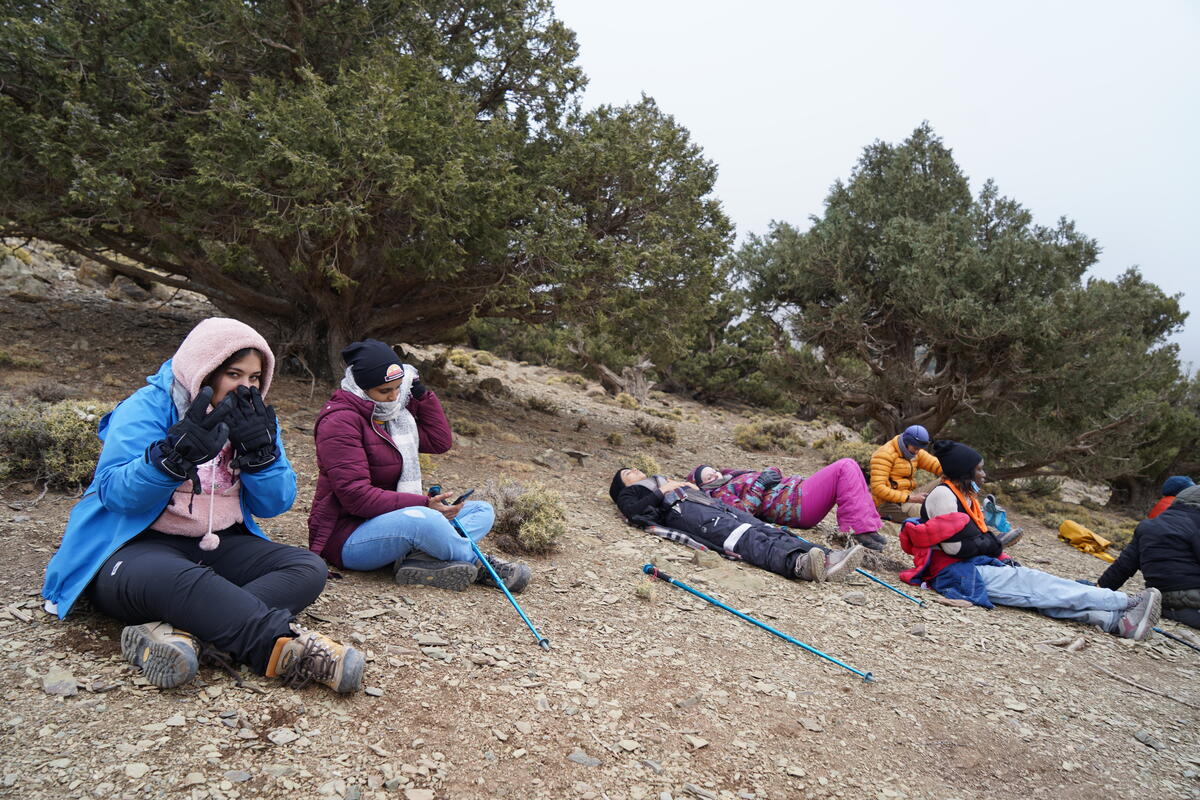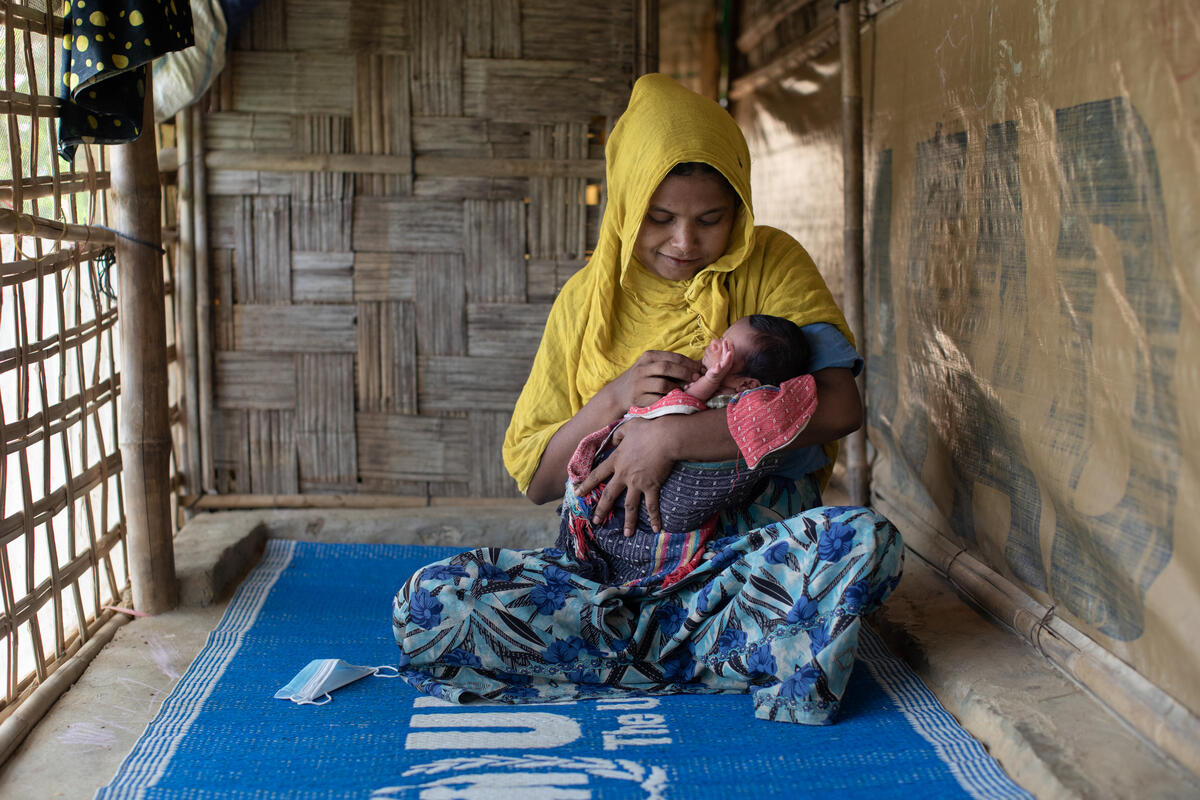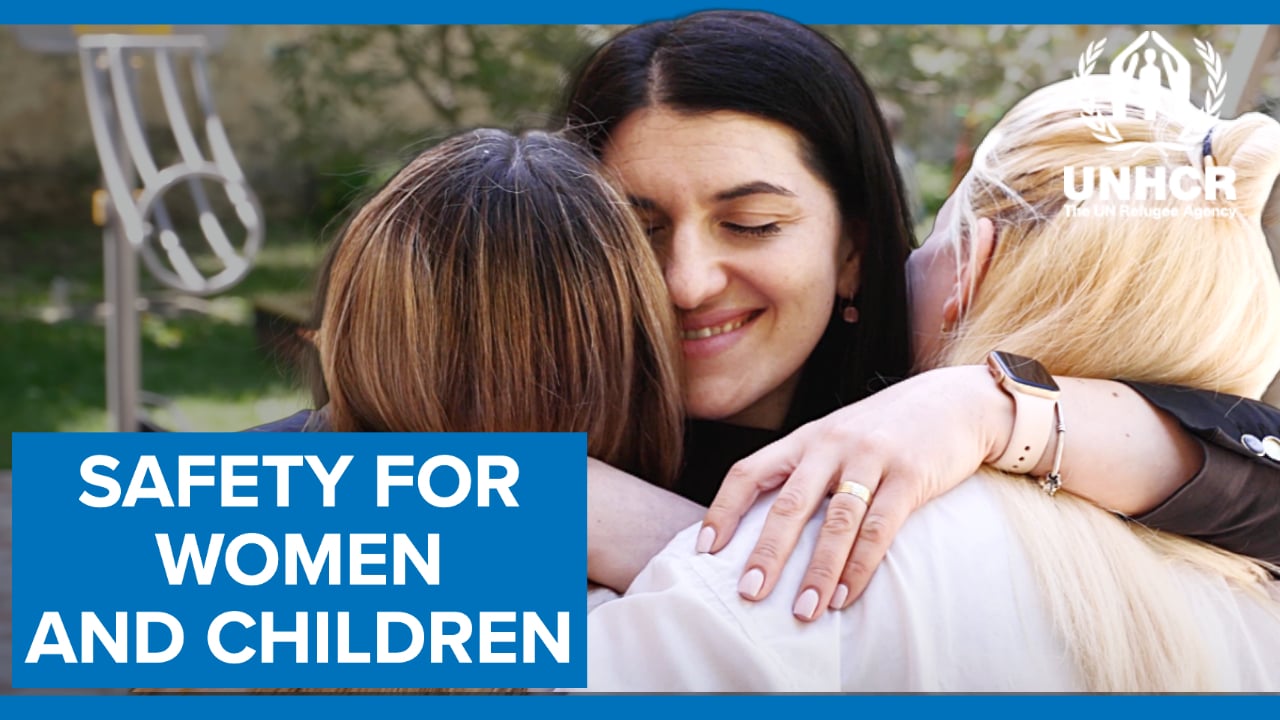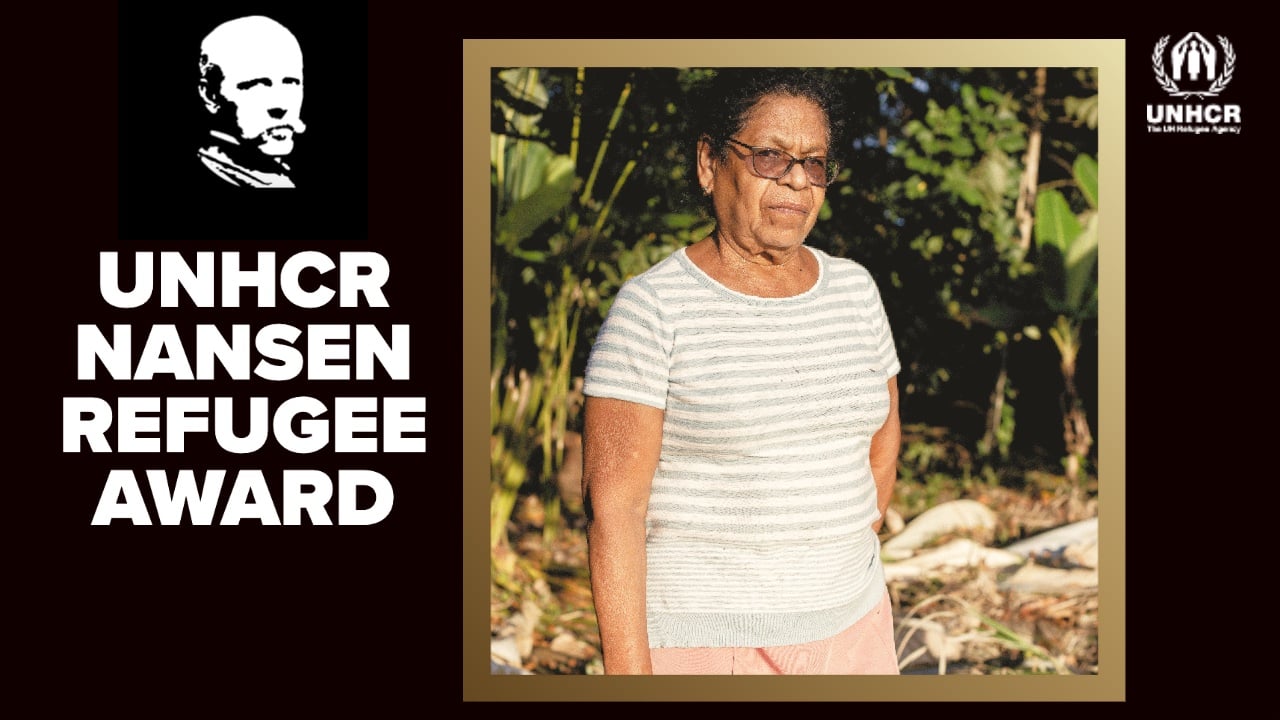Refugee women scale Atlas mountain to tackle gender violence
Refugee women scale Atlas mountain to tackle gender violence

As the red sand plains of Marrakesh give way to lush green valleys at the foothills of the Atlas Mountains, the sense of excitement among the group of refugee women riding the bus together begins to grow, bubbling over when they get their first sight of the snow-capped peak that is their ultimate destination.
For Hanin, a 24-year-old medical student who fled the conflict in Syria and came to Morocco as a refugee in 2012, it is a particularly special moment.
“I haven’t seen snow since I left Syria. I can’t believe I get to see it again!” she exclaimed.
Hanin is one of 13 refugee women who – together with seven female staff from UNHCR, the UN Refugee Agency, and their partner organizations in the country – set out to scale Mount Toubkal, Morocco’s highest peak at over 4,100 metres.
The women, who originally hail from Syria, Yemen, Cameroon, the Democratic Republic of the Congo, the Republic of the Congo, Libya and Senegal, undertook the daunting trek organized by UNHCR during the 16 Days of Activism against Gender-Based Violence.
Their goal was to climb within sight of the summit, and in doing so raise awareness of the challenges and dangers facing refugee women in their home countries, on their journeys and in their host communities.
Morocco is currently host to more than 17,500 registered refugees and asylum seekers from some 50 countries. With one-in-five forcibly displaced women globally having faced some form of sexual violence, UNHCR is committed to tackling the issue and the taboos that often surround it.
“We want to send a message specifically to women that we are with you,” Hanin explained, before adding: “Pray for us and wish us luck!”
After setting off on their two-day ascent from the village of Imlil at the foot of the mountain, the laughter and chatter quickly subsided as members of the group with varying levels of physical fitness grasped the scale of the challenge they had taken on.
Equipped with walking poles and protected from the cold by knitted hats, padded jackets and bright orange scarves – a colour symbolizing the struggle to end violence against women and girls – the group made slow but steady progress up the steep, rock-strewn mountain paths.
When some climbers faltered or stopped to catch their breath, fitter members of the group held back to offer words of encouragement and drive them on. Among them was Farida, a 27-year-old refugee from Pointe-Noire in the Republic of the Congo, who arrived in Morocco in 2018 and, despite currently a playing as a professional footballer with Kawkab Athletic Club in Marrakesh, also found the climb challenging at times.
“It wasn’t easy. We walked the whole day, but in the end it did us all the world of good,” Farida said.
They spent the night at a mountain refuge where, despite their tired limbs and exhortations to rest ahead the next day’s climb, they shared a meal prepared in tagines and sang, danced and talked well into the night. Some of the women shared details of the violence and trauma they themselves had faced with the group, which included Zineb, a trained psychologist from the Foundation Orient-Occident in Rabat.
The following morning, they set out on the final leg of their climb, tired but resolute.
“Yesterday was rough, but the most important thing is that we continue our hike today in the same mood as the day before,” Hanin said as they continued upwards.
"It allowed me to face my fears."
After several more hours of toil, they finally reached the spectacular Ighouliden waterfalls in the shadow of Mount Toubkal’s looming summit. Holding their poles aloft and chanting “refugees at the summit”, the women congratulated each other and reflected on the experience.
Valerie, a 28-year-old refugee from Douala in Cameroon, arrived in Morocco after a month-long journey through the deserts of Niger and Algeria, during which she often had to walk long distances between car journeys.
Holding back tears as she stood beside the waterfall, Valerie said the trek had brought back difficult memories for her, but the overall experience had been a healing one.
“The atmosphere here with all these women was great. When we had the energy, we sang, we yelled and we danced,” she said. “For me it was like a therapy…because it allowed me to face my fears and to have hope in life. To know that we can do these kinds of hikes for the pleasure of it, and not because we’re forced to.”












